Wilmington Rental Car Accident Attorney
A rental vehicle accident can be a complicated challenge while on vacation or otherwise. If this happens, take a deep breath, and then contact the rental vehicle accident lawyers at Rhine Law Firm for guidance and advocacy. Our Wilmington car accident lawyers are experienced and familiar with the unique complications of these types of accidents and know how to best protect your rights. Contact us today for a free case evaluation.
How to Prepare when Renting a Car
When driving a rental car, you are often on vacation or out of town for business. While you may not be concerned about an accident, it’s best to be prepared—so here are some tips:
- Some credit cards provide rental car insurance. Charging your rental car to a credit card that offers this coverage can save you significant money.
- Consider purchasing your own rental car coverage. If your existing insurance coverage does not extend to rental cars, and you do not want to buy this through the rental car company, there are third-party providers you can contact. If you are involved in an accident in a rental car and are not insured, you may not have the coverage you need.
- Before you take possession of the rental car, inspect it thoroughly and note any pre-existing damage.
What Should I Do If I Am Involved in a Rental Car Accident in North Carolina?
If you are involved in a rental car accident in North Carolina, there are several steps you can take to help maximize your financial recovery. The most important include calling the police, taking care of your immediate medical needs, and contacting an experienced lawyer.
At Rhine Law Firm, our client’s best interests are at the forefront of everything we do. We employ state-of-the-art legal research and strategies. Rental car accidents can be complex, and it’s best to have a strong advocate in your corner fighting for your rights. Although our primary office is in Wilmington, North Carolina, we represent clients across the state and nationally.
Crucial Steps to Take in the Aftermath of a Rental Car Accident
To help build your case and protect your health, follow these crucial steps after a rental car accident:
- Call the police and ensure that an accident report is filed. This document may become an essential piece of evidence. In addition, even if you believe the accident may have been your fault, do not admit fault to the police, other drivers, or the insurance company. Do not speak to any insurance carrier, even your own, about the accident or your injuries and other damages until you speak to an attorney.
- Seek medical attention as soon as possible, even if you are not experiencing discomfort. Adrenaline floods the body, masking pain, especially in soft tissue injuries.
- Take pictures and write detailed notes about everything relevant to the accident. This might include images of all the vehicles involved, your injuries, any posted street or traffic signs, the weather, and road and traffic conditions. In addition, note any businesses in the surrounding area because their security cameras may have captured the accident.
- Collect the contact information of any eyewitnesses to your accident.
- Contact the rental car company to inform them of the accident.
- Contact your insurance company to inform them of the crash.
- Refrain from posting pictures, videos, or text about the accident or your injuries on social media.
- If you sustained injuries, follow all advice from your doctor, and keep a daily journal that documents your injuries and any pain you are experiencing.
- While your claim is pending, assume you are being followed by a private investigator and conduct yourself accordingly.
What not to do after a rental car accident
- Do not discuss the potential causes of the accident with other motorists in the immediate aftermath.
- Do not discuss the accident unnecessarily with witnesses or the other driver.
Do not post details about the accident, injuries, or discussions with insurance on social media—and make sure you are not tagged in those discussions.
The Right Attorney Can Make All the Difference: Call Us for a Free Consultation
At Rhine Law Firm, P.C., we understand that no one wants to consider the possibility of getting into an accident while driving a rental car. However, being prepared and knowing who to contact is vital—because an experienced attorney can fight to get the compensation that covers your injuries and losses. Contact us for a free no-obligation consultation. In addition, we work on a contingency basis, so there are no upfront legal fees.
Compensation After a Rental Car Accident
When an accident happens, it is typically because someone was negligent in their driving. Negligence is proven by a logical formula in courts: duty, breach, injury, and causation.
Essentially, to prove negligence, you must show that someone acted unreasonably (by driving recklessly, for example) and, in doing so, directly caused injury to another person. This injury can be physical, as in a concussion, or it could be a loss of property, i.e., the rental car was totaled. Once negligence is proven, the court will move on to analyze damages.
There are three different types of damages that can be won in a negligence lawsuit: economic, non-economic, and punitive. Economic damages are measurable and can be proven with a receipt, invoice or bill and can include:
- Past and future medical bills.
- Lost wages from time out at work.
- Loss of earning capacity.
- Property damage, i.e., car repairs or items broken inside the vehicles.
Non-economic damages are intangible losses suffered from an accident and can include:
- Physical pain and suffering.
- Emotional distress.
- Loss of consortium.
- Inconvenience from having to live with physical limitations due to the accident.
These damages can be highly subjective and require nuanced argument. For instance, consider a former Olympic athlete who, before the accident, still competed for fun and coached their children. They may have expert witness testimony on depression and anxiety amongst disabled former athletes. They will likely receive more damages than someone who rarely relied upon their physical abilities for enjoyment.
Punitive damages are awarded as a punishment to the defendant for particularly egregious actions. This must be proven to a higher standard than other damages. However, when awarded, the amount is usually significantly higher than the other categories.
How an Attorney Can Help
Accidents involving rentals can become even more complex than the average car accident as several different, overlapping insurance policies may come into play. If this happens, let the rental vehicle accident lawyers at Rhine Law Firm take the wheel. Our skilled car accident lawyers will fight for your right to receive compensation so that you can focus on healing. Contact us for a free case evaluation. We work on a contingency basis, so there are no upfront legal fees.




